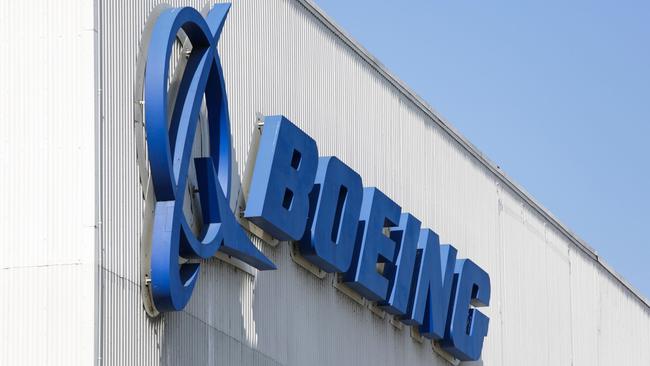Companies fret over coronavirus despite rebound
Results from auto makers to cereal producers are better than expected, but firms remain hesitant about the future. ‘The world is in a fragile state.’

Business for many companies rebounded faster than expected following the coronavirus-related economic shock this spring, but many corporate leaders are warning that the bounceback wasn’t uniform and may prove fleeting as infections surge again.
Stronger demand buoyed companies ranging from auto makers to cereal producers during the quarter that ended in September as businesses and consumers adapted to the disruptions caused by the coronavirus. Yet executives described the path forward as tenuous, with caseloads hitting records in the U.S. and government officials in Europe and elsewhere imposing limits on some activities.
“It is not a straight-line recovery around the world,” Coca-Cola Co. Chief Executive James Quincey told investors last month after the beverage giant said quarterly revenue fell 9%, more moderate than the 28% decline in the prior period. “It’s important to remember the world is in a fragile state.” Even companies that have benefited from shifting customer behavior during the pandemic, like Apple Inc., have sounded cautionary notes. The company on Thursday declined to offer a revenue forecast for its current quarter, disappointing investors. Luca Maestri, Apple’s chief financial officer, cited “the continued uncertainty around the world in the near term.” Other companies have announced fresh rounds of job reductions as the pandemic continued to drag down their end markets. Exxon Mobil Corp. plans to cut up to 15% of its global workforce, including 1,900 positions in the U.S., over the next year. Boeing Co. said last week that it expects to reduce its head count by another 11,000 employees, including 7,000 layoffs, on top of the almost 20,000 already announced.
“The coronavirus remains a central problem,” said Frank Witter, finance chief at Volkswagen AG, as the world’s largest car maker by sales reported a third-quarter profit of EUR2.6 billion, equivalent to $3 billion, compared with a loss in the previous quarter.

The cautious tone from executives comes after many companies reported better-than-expected quarters. Of the 64% of companies in the S&P 500 index that had given results as of Friday, more than 80% have posted revenue and per-share earnings above analyst estimates, according to FactSet, on track to be the highest such levels since the company started tracking those metrics in 2008. Overall, though, revenue and earnings for the quarter are still expected to decline year over year, but by a smaller percentage than the June quarter and what was expected by analysts a month ago.
Helping companies was a strong rebound in gross-domestic product in the U.S. and across the eurozone during the third quarter; however, economic forecasters and government officials believe economies in both regions will likely lose steam as the year ends. The International Monetary Fund expects China will be the only major economy to grow this year overall.
Diverging outlooks for growth across global markets is making it difficult for companies to forecast the end of the year, executives said. Samsung Electronics Co., which reported a 49% increase in quarterly profit for the third quarter, said its television business faces fresh challenges in the fourth quarter due to the spread of the coronavirus in markets such as the U.S. and Europe.
“Some of these countries may go back into lockdown,” Kim Won-hee, vice president of Samsung’s visual-display business, told investors. “This may lead to economic contraction globally on a long-term basis.” Tech companies have been among the biggest winners as more people spend more time working and socializing at home, and as businesses invest in digital tools to adapt to the trend. For the latest quarter, Apple, Amazon.com Inc., Google parent Alphabet Inc., Facebook Inc. and Microsoft Corp. collectively generated 18% more revenue than in the year-earlier period.
But those giants are also having trouble laying out how 2020 will wrap up and what next year might bring. Amazon finance chief Brian Olsavsky said the company generally faces issues tied to the holidays, such as spending levels, and noted it saw some disruption during the election four years ago. But the coronavirus remains the major issue Amazon is trying to navigate.
“I think the fact that Covid is dwarfing all of those is causing us a lot of uncertainty on our top-line range,” he said Thursday after the company said revenue shot up 37% for the third quarter to $96.2 billion and profit almost tripled. The company forecast $112 billion to $121 billion in sales for the current quarter.
Facebook operations chief Sheryl Sandberg said the next few quarters will continue to be precarious for many businesses. The social-media company also said its own performance next year is uncertain, citing potential changes in demand for advertising related to online commerce.
Executives say they are focusing on controlling the variables they can by using the pandemic to position their companies for the long term. That includes Kellogg Co., the company behind cereals such as Corn Flakes, which has benefited as consumers buy more food to eat at home.
“We believe that this crisis, as terrible as it’s been, has given us an opportunity to really engage with consumers in meaningful and lasting ways and to make those investments to emerge stronger,” Kellogg Chief Executive Steve Cahillane said. The company on Thursday raised its comparable-sales forecast for 2020.
The Wall Street Journal






To join the conversation, please log in. Don't have an account? Register
Join the conversation, you are commenting as Logout